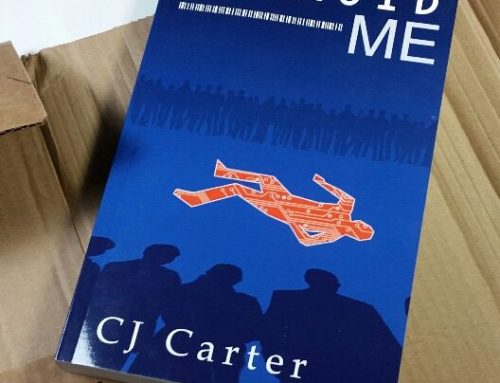Snyder: “There’s some things I can just smell. It’s like a sixth sense.”
Giles: “Well, actually, that would be one of the five.”
Buffy the Vampire Slayer, “When She Was Bad”
Something that a lot of writers forget is that the reader doesn’t live only in a world of mental imagery. Their world is filled with sights, sounds, smells, tastes, and sensations. If you want your audience to be immersed in your story, you have to remember that they need you to excite all their senses (it’s also polite, as some readers might be lacking one or more of those senses, and the added descriptions can only help).
Consider: Bob stood in the alley lit only by a flickering bare bulb above the employee’s entrance to the restaurant. He was alone… or so he thought.
Compare this with: Bob stood in the alley lit only by a flickering bare bulb above the employee’s entrance to the restaurant. Coming from inside the open door he could hear pots clanging and shouts in what seemed to be Chinese. His mouth could almost taste the chicken and garlic from the aromas wafting from the kitchen. Even the rank smell of rotting vegetables in the nearby dumpster couldn’t keep his mouth from watering. He felt a tiny weight on top of his foot and the subtle movement of his pants leg. Rats — the alley was full of them. A bottle cling-a-linged not too far away in the dark abyss of the alley. More rats… but four- or two-legged? That was the question.
Obviously I’m creating an extreme comparison, but one that is important to consider nonetheless. You and your audience are used to experiencing the world through many senses simultaneously. Don’t short change them unnecessarily. Use sounds. Use smells. You are setting a scene and mood. You want the picture you paint with your words to be multi-dimensional.
That said, don’t go overboard. Few things are more tedious to read than an author describing every little trivial thing. Pick your spots. The brief first example I gave, above, is fine as it is in many settings: a short-short story, in the middle of a passage where other descriptions would be distracting, a script for a graphic novel, and so forth.
There is no formula as to when to invoke the other senses. I generally use them during natural pauses in action. Funny thing is, while these descriptions can often be plodding if used too frequently in the narrative, they are incredibly important for action sequences. Think about it… action is usually supposed to be visceral or primal. “If you take time to think, then you’re dead,” is often said in justification of why characters acted a certain way. That means when writing an action sequence, thoughts aren’t as important as reaction… as senses. The whoosh of a sword. The metallic smell of blood. The gritty feel of a dust-encrusted glove around a victim’s neck. The ache of muscles worked harder than they are used to. The moans of the unseen fallen once battle is done.
Emotionally bonding scenes are often enhanced with attention to the senses. But it’s more than simple caresses or perfumes. It’s the subtle tickling of the peach fuzz around a women’s jaw line when the hero takes her face in his hands. The rangy smell of a lost dog being reunited with his boy. The smell of peat and mulch as a daughter tends a garden with her mother. After the wedding, the soft whistling of a groom’s nose as he takes a nap in the limo.
It all adds richness and color to your canvas of pages (and it doesn’t hurt to pad out the length a bit, when necessary). Don’t limit yourself to only what you can see in your mind’s eye. Use your mind’s ear, your mind’s tongue, mind’s nose, and mind’s skin as well. Your stories will have greater depth, and your readers will thank you for the effort.
Of course this isn’t the last word on characters. Not by a long shot. I hope it gets you thinking about what connects the reader to a particular work. Think back on stories you like. Think about the characters. Are they strong? Are they varied? If they aren’t, imagine what the story might have been if the characters had been fleshed out more. Does it seem like you’d have enjoyed the end result better?
What I’m getting at is that you shouldn’t just assume that these wonderful characters will suddenly leap off the page once you start writing. Dollars to donuts, all those stories you read with flat, uninteresting, or formulaic characters are ones where no planning went in beforehand. I know the cry is often heard that if you do too much planning, the story can be as equally uninspiring. I agree. You have to know where the line is. Even so, I think if you develop your characters totally divorced from the plot, it’s very difficult to overdo your research; I don’t think the same can be said of plot.
Think on it. Try it out. Let me know how it works for you.





